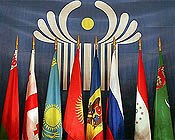(Caucasus Analytical Digest) Overall, Azerbaijan has maintained its distance from Russian integration projects. While the newly forming Eurasian Union may have some economic and political benefits for the country, the costs in terms of sovereignty and the ability to maintain an independent energy policy outweigh such advantages.
For the entire period of its independence, Azerbaijan skeptically viewed all integration processes in the former Soviet Union space. In most of the cases, official Baku interpreted these processes as Russian ambitions to restore its dominance in the Eurasian region. Despite the fact that Azerbaijan voluntarily joined the Commonwealth Independent States (CIS) in 1993, Baku did not have warm feeling for this organization, considering it little more than a Moscow-led project. Nevertheless, Azerbaijan did not join the Customs Union, Common Economic Space or Collective Security Treaty Organization (CSTO). Thus, Azerbaijani experts and the general public saw the decision to create a Eurasian Union as an attempt to assure Russia a dominant role in the region by bringing all the above-mentioned organizations under one umbrella. The fact that President Vladimir Putin returned to the Kremlin in 2012 on the wave of promises to strengthen integration processes shows that the Russian political establishment seriously thinks about such a scenario. […]
See the full Article (PDF) | © Caucasus Analytical Digest











